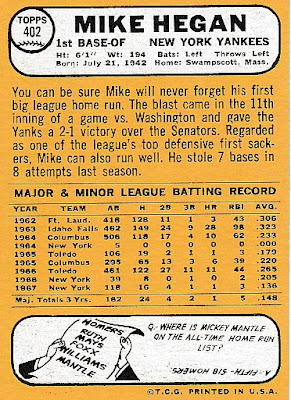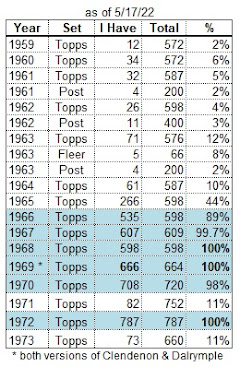I was all ready to write about Dillman being part of the 1967-69 wave of Orioles' pitchers (along with Tom Phoebus, Jim Hardin, and Dave Leonhard) that followed the 1964-66 wave of Dave McNally, Wally Bunker, and Jim Palmer, but when I looked him up in Baseball-Reference.com today, I was surprised to see that he only pitched 32 games for the O's, all in 1967 (when their "main" pitchers were all out with sore arms).
The oddball "red rookie card" in the 1967 set:
In 1968, McNally rebounded to win 22 games, while Hardin and Phoebus won 18 and 15 respectively. With rookie Dave Leonhard joining the team that year, and Bunker sharing the #5 starter job with Gene Brabender, there was no room on the roster for Dillman, so he spent the next 2 seasons pitching for their AAA Rochester club. (It's surprising then that he had a card in the 1969 set.)
After the 1969 season he was purchased by the Cardinals, so Topps gave him one more chance. However, early in the 1970 season (having not played for the Cardinals) he was traded to the Expos for Carroll Sembera, and pitched in 18 games for Montreal from May to July, then it was back to triple-A for the rest of that season and all of 1971.
Dillman finished out his career in 1972 with the Mets’ AAA team.








.jpg)









%20(f).jpg)







